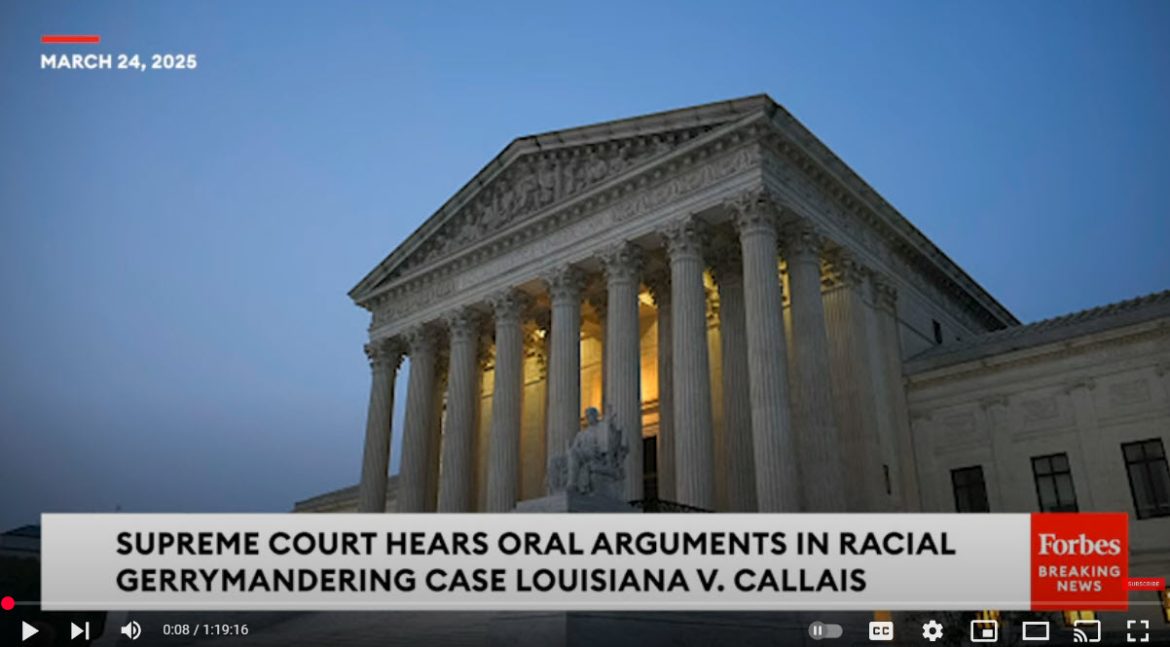The U.S. Supreme Court is weighing a pivotal redistricting case that could reshape how race is considered in drawing congressional maps. At issue is whether Louisiana’s updated congressional map, which includes two majority-Black districts for the first time in decades, meets constitutional and legal standards under the Voting Rights Act or unlawfully prioritizes race.
The case, Louisiana v. Callais, comes after years of legal wrangling. Following the 2020 Census, Louisiana’s Republican-controlled legislature passed a congressional map that maintained just one majority-Black district out of six—despite Black residents making up nearly one-third of the state’s population. Civil rights groups challenged the map under Section 2 of the Voting Rights Act, arguing that it diluted Black voting power. A federal district judge agreed and ordered the creation of a second majority-Black district.
Louisiana lawmakers initially resisted, but in 2024 they passed a revised map that added a second majority-Black district. The revised map drew lawsuits from both sides of the political spectrum. Conservative activists argue the map is an unconstitutional racial gerrymander that violates the Equal Protection Clause by making race the predominant factor in redistricting. Civil rights groups, meanwhile, reluctantly support the map as a necessary, though imperfect, remedy to decades of racial underrepresentation.
During oral arguments this week, justices appeared sharply divided. Conservative justices questioned whether Louisiana’s legislature relied too heavily on race and not enough on traditional redistricting criteria like compactness and contiguity. Justice Samuel Alito asked whether the map’s design could be justified without using race as the primary factor. Liberal justices, led by Justice Ketanji Brown Jackson, emphasized the importance of the Voting Rights Act and the historical barriers Black voters in Louisiana have faced.
The Biden administration, through the Department of Justice, has filed an amicus brief supporting the new map, arguing that it aligns with constitutional mandates and helps fulfill the promise of equal representation. The case also arrives amid a broader reckoning on redistricting nationwide, as courts in Alabama, Georgia, and South Carolina have recently weighed in on similar disputes.
The high court’s ruling could have far-reaching implications, particularly in states where race and politics intersect closely in the redistricting process. A decision striking down Louisiana’s map could make it harder for minority voters to secure congressional representation in other Southern states.
If upheld, the map would likely help Democrats regain a House seat in Louisiana, where five of six districts are currently held by Republicans. A ruling is expected by the end of the Court’s term in June.
Sources:
- https://apnews.com/article/us-supreme-court-louisiana-redistricting-voting-rights-act-3cfaad79d74c13666fb19c91b8e6e191
- https://www.reuters.com/legal/us-supreme-court-weighs-if-louisiana-election-map-unlawfully-favors-black-voters-2025-03-25
- https://www.cnn.com/2025/03/25/politics/supreme-court-louisiana-gerrymandering-case/index.html
- https://youtu.be/sRDpxGbX8FM



